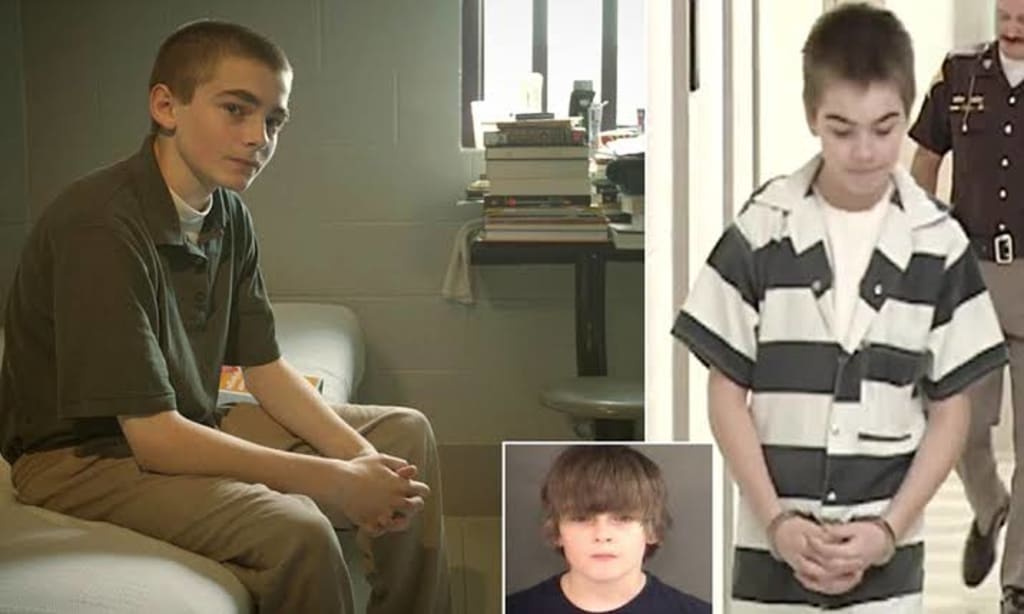The Chilling Crime: The Murder of a Stepfather by a Teenager
In 2010, Paul Gingerich and Colt Lundy, aged 12 and 15, respectively, were involved in the murder of Colt's stepfather in Indiana.

The case of Paul Gingerich and Colt Lundy shook the nation in 2010 when the two young boys were involved in the murder of Colt's stepfather, Phillip Danner, in Indiana. The incident raised profound questions about juvenile justice and the appropriate punishment for minors who commit serious crimes.
On April 20, 2010, 12-year-old Paul Gingerich and 15-year-old Colt Lundy carried out a plan to kill Colt's stepfather, Phillip Danner. The motive behind the crime was reportedly the boys' desire to run away together. Armed with handguns, they shot Danner while he slept on the couch in their home.
The shocking nature of the crime, along with the age of the perpetrators, quickly drew media attention and ignited debates about the criminal culpability of juveniles. The case also brought to the forefront the issue of children having access to firearms and the potential consequences of such unrestricted access.
Following their arrest, Paul Gingerich and Colt Lundy were charged with murder and conspiracy to commit murder. Due to the severity of the charges and the age of the defendants, their case attracted national and international interest, raising questions about how the criminal justice system should treat minors involved in such violent crimes.
During their trial, the defense argued that the boys' young age and developmental immaturity should be taken into account when determining their guilt and sentencing. They pointed to research on adolescent brain development, highlighting that the decision-making abilities of adolescents are not fully developed, and they may lack the capacity for long-term planning and understanding the consequences of their actions.
In contrast, the prosecution maintained that the gravity of the crime warranted a severe punishment, despite the defendants' ages. They argued that the boys were old enough to understand the consequences of their actions and should be held accountable for their role in the murder.
In June 2010, both Paul Gingerich and Colt Lundy were found guilty. They were sentenced to serve time in juvenile detention facilities until the age of 18, at which point they would be evaluated for possible adult prison sentences. This outcome sparked a heated debate over the appropriateness of sentencing juveniles to lengthy periods in adult prisons.
As the case garnered widespread media attention, various advocacy groups and child rights organizations rallied to support the two boys. They argued that sentencing juveniles to adult prisons can lead to long-lasting psychological and emotional trauma, hampering their chances of rehabilitation and reintegration into society.
In response to public outcry and growing concerns about the treatment of juveniles in the criminal justice system, Indiana legislators later introduced legislation to change the sentencing guidelines for juvenile offenders. The new law aimed to ensure that children who commit crimes are treated with an approach focused on rehabilitation and restorative justice rather than punitive measures.
In 2013, Paul Gingerich's sentence was reduced, and he was transferred to a residential treatment program. In 2018, after serving several years in juvenile detention, Colt Lundy was resentenced to 45 years in prison as part of a plea deal.
The case of Paul Gingerich and Colt Lundy remains a poignant reminder of the complexities of juvenile justice. It brought attention to the importance of considering the developmental differences between children and adults in the criminal justice system. Moreover, it highlighted the need for a more comprehensive approach to dealing with juvenile offenders, emphasizing rehabilitation, and providing age-appropriate interventions.
The incident also raised awareness about the significance of early intervention in troubled youths' lives and the role of parental supervision and responsible firearm ownership in preventing such tragedies.
In conclusion, the case of Paul Gingerich and Colt Lundy, involved in the murder of Colt's stepfather in Indiana in 2010, brought attention to the complexities of juvenile justice and the appropriate punishment for minors who commit serious crimes. The incident sparked debates on adolescent brain development, access to firearms, and the importance of rehabilitation for juvenile offenders. The case serves as a reminder of the need for age-appropriate interventions and support systems to address the root causes of juvenile delinquency and prevent similar tragedies in the future.





Comments
There are no comments for this story
Be the first to respond and start the conversation.